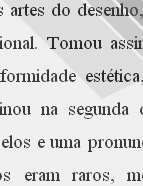

................................
He was secretary to the committee for the reform of art education, conservation of historical monuments and the formation of national museums. He wrote on the Portuguese colonies and maritime expansion, as well as on science, literature, geography, travel, hydrography, and banking. In the field of the arts he published Tesouros de Arte: Relances de um viajante [Art Treasures: A traveller's glimpse] (1875), an opinion article on As Obras dos Jerónimos [The Works of Jerónimos [Monastery]] (1895) and a compilation in two volumes: Livro de Crítica: Arte e literatura portuguesa de hoje: 1868-1869 [Book of Criticism: Portuguese art and literature today: 1868-1869] (1869) and Segundo Livro de Crítica: Arte e literatura portuguesa de hoje: Livros, quadros e palcos [Second Book of Criticism: Portuguese art and literature today: Books, paintings and stages] (1871). António Enes (Lisbon, 1848 - Queluz, 1901) was a journalist, a librarian of the Biblioteca Nacional, a playwright, colonial administrator, a member of parliament, ambassador, and Ministro da Marinha e do Ultramar [Minister of the Navy and Overseas Territories] (1890-1891). He collaborated in the journal Artes e Letras, where he wrote on "Os abusos do realism” [“The abuse of realism"] (1872) and reviewed exhibitions. Zacarias d'Aça (Lisbon, 1839 - 1908), a librarian of the Academia de Belas-Artes, a member of the Direção-Geral de Instrução Pública [Directorate General of Public Instruction] and a teacher for fourteen years in a private school, wrote on hunting, history and art. He contributed to the Revista Contemporânea de Portugal e Brasil [Contemporary Journal of Portugal and Brazil] and O Ocidente. One of the three chapters of the voluminous book Lisboa Moderna [Modern Lisbon] (1906) was dedicated to the fine arts.
In the 1880s, naturalism prevailed as a current and gained traction in criticism. José-Augusto França referred to Ramalho Ortigão, Fialho de Almeida, Ribeiro Artur and Monteiro Ramalho as the "critics of naturalism". Defining himself as an artist of criticism, since he did not fulfil the rigorous precepts he deemed necessary for the exercise of such activity (profound erudition, direct and comparative study, penetration of spirit, sensitivity, discursive aptitude, etc.), Ramalho Ortigão (Porto, 1836 - Lisbon, 1915) was, in fact, one of the most important critics of this period. His articles on the history of architecture, sculpture and painting and the historiographical dimension of chapter VII of A Holanda [Holland] (1883) and O Culto da Arte em Portugal [The Cult of Art in Portugal] (1896) revealed rather than obscured his critical endeavour.
